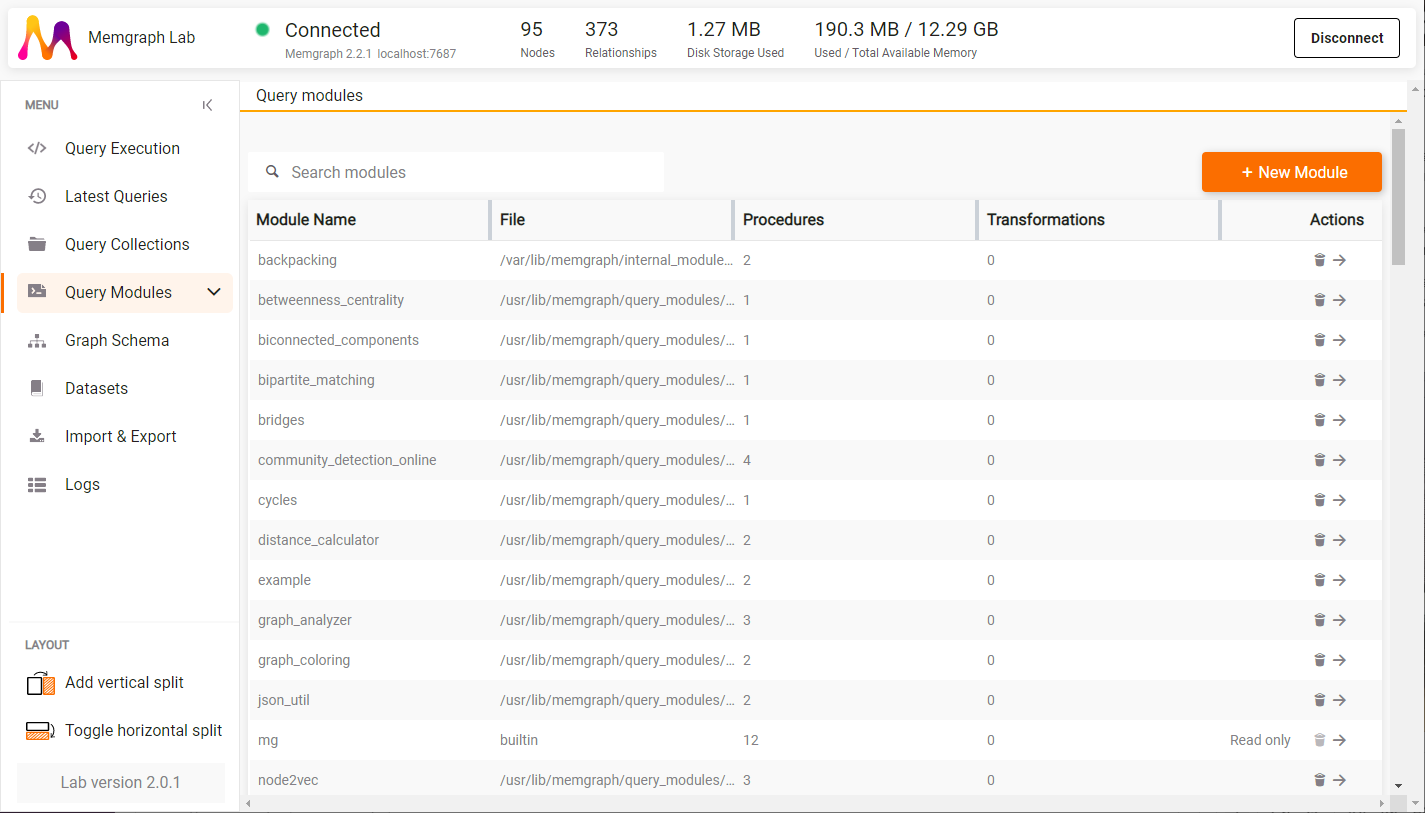Implement custom query modules
If you need to expand the Cypher language, Memgraph provides public APIs for writing custom query modules in Python, C and C++.
Python API
Python API is defined in the mgp module that can be found in the Memgraph
installation directory /usr/lib/memgraph/python_support. In essence, it is a
wrapper around the C API. If you wish to write your own query modules using the
Python API, you need to have Python version 3.5.0 or above installed.
For more information, check the Python API reference
guide.
We also made an example
module
to help you start developing your own modules.
You can develop query modules in Python from Memgraph Lab (v2.0 and newer). Just navigate to Query Modules and click on New Module to start.

Custom modules developed via Memgraph Lab are located at
/var/lib/memgraph/internal_modules.
Mock Python API
The mock Python query module API enables you to develop and test query modules for Memgraph without having to run a Memgraph instance by simulating its behavior. As the mock API is compatible with the Python API, you can add modules developed with it to Memgraph as-is, without modifying the code.
For more information and examples, check the mock Python API reference guide.
C API
C API modules need to be compiled to a shared library so that they can be loaded
when Memgraph starts. This means that you can write the procedures in any
programming language that can work with C and be compiled to the ELF shared
library format (.so). mg_procedure.h that can be found in Memgraph
installation directory /usr/include/memgraph contains declarations of all
functions that can be used to implement a query module procedure. To compile the
module, you will have to pass the appropriate flags to the compiler, for
example, clang:
clang -Wall -shared -fPIC -I /usr/include/memgraph example.c -o example.so
For more information, check the C API reference
guide.
We also made an example
module
to help you start developing your own modules.
C++ API
C++ API modules, just like C API modules, need to be compiled to a shared library so that they can be loaded when Memgraph starts. This is done much in the same way as with C API modules.
For more information, check the C++ API reference
guide.
We also made an example
module
to help you start developing your own modules.